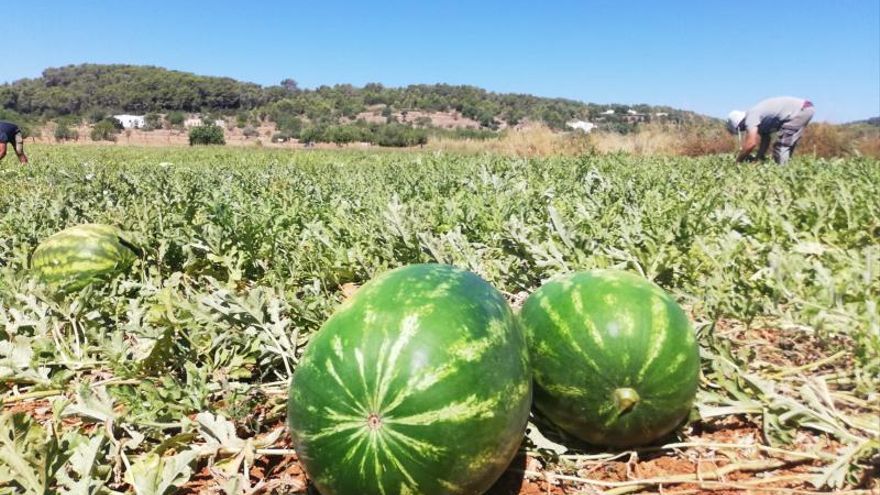At the Can Toniet estate, located in Camí de sa Vorera (Sant Antoni), three customers buy three watermelons weighing more than 10 kilos each from José Prats: at 90 cents per kilo, each piece costs them 9.3 euros, 12 euros and 13 euros . A supermarket of a well-known brand offers them in Vila at 1.7 euros per kilo: they also have cyclopean specimens that would exceed 20 euros per unit. At a stall in the Mercat Nou they are at 1.2 euros per kilo. Each watermelon, at the price of a steak, hence some hypermarkets on the island choose to offer them cut or, given its price, have even disappeared from the shelves: consumers have replaced the quintessential summer fruit for apples, smaller and therefore more affordable.
Why is watermelon priced like Jabugo ham? Bad weather, according to Josep Lluís Joan, technician for the Promotion of Agrifood Quality of the Consell de Ibiza: “The Ibizan watermelon season usually starts in June, but this year it was delayed due to bad weather conditions, which also damaged the national harvest”. And you know, in such cases the fundamental law of economics applies, that of supply and demand: “The national supply was reduced. Watermelons did not arrive on the island on time, at the beginning of the season, so prices went up. The demand is the same as always, but the supply is much lower, so the price per kilo is more expensive”.
“The Ibizan watermelon season usually starts in June, but this year it was delayed due to bad weather conditions, which also damaged the national harvest”
The Ibizan watermelon reached the market “later than usual”, at the end of June, but just in time to take advantage of the shortage of this fruit and thus obtain a “very good price” for each kilo. and that,” Joan points out, “is a good thing. For the first time it can be considered that the farmers have been paid a fair price. For the first time in many years, it has not gone down as a result of oversupply or the very low price of those coming from Morocco, where labor costs are much lower than here.”
“For the first time it can be considered that the farmers have been paid a fair price. For the first time in many years, it has not gone down as a result of an oversupply or the very low price of those coming from Morocco
The farmer, indicates the technician of the Consell, “depends a lot on the market”, and gives an example that reminds us of the potter in ‘The Cave’ by José Saramago: “The farmers arrive with their product to a buyer and this one tells them that the market price is such and that they can either accept it or they can take their fruits back to their house”. This time it was not like that: “This year the price has been right” for the farmer, but for the consumer it has meant another blow of the rising inflation to their already depleted pockets.
At these prices, the farmer has been “happy”, says Joan: “That feeling, that happiness of finally being able to sell at a fair price was also experienced during the pandemic. Happiness to see that their work is appreciated and that they are paid accordingly, without constantly being scolded. The farmers are very happy. Imagine: every time they go down to Vila with a van full of watermelons it is a fortune for them”. This fruit is, says the technician of the Consell, not only “the main fruit and vegetable product of Ibiza in volume”, but also “a prop for many farmers. Some live on it. And it is also “critical, strategic”, because people “pay a premium for eating the island’s watermelons, as happens with potatoes, as both are differentiated by their quality”.
For the full article, please visit Diario de Ibiza website here.


